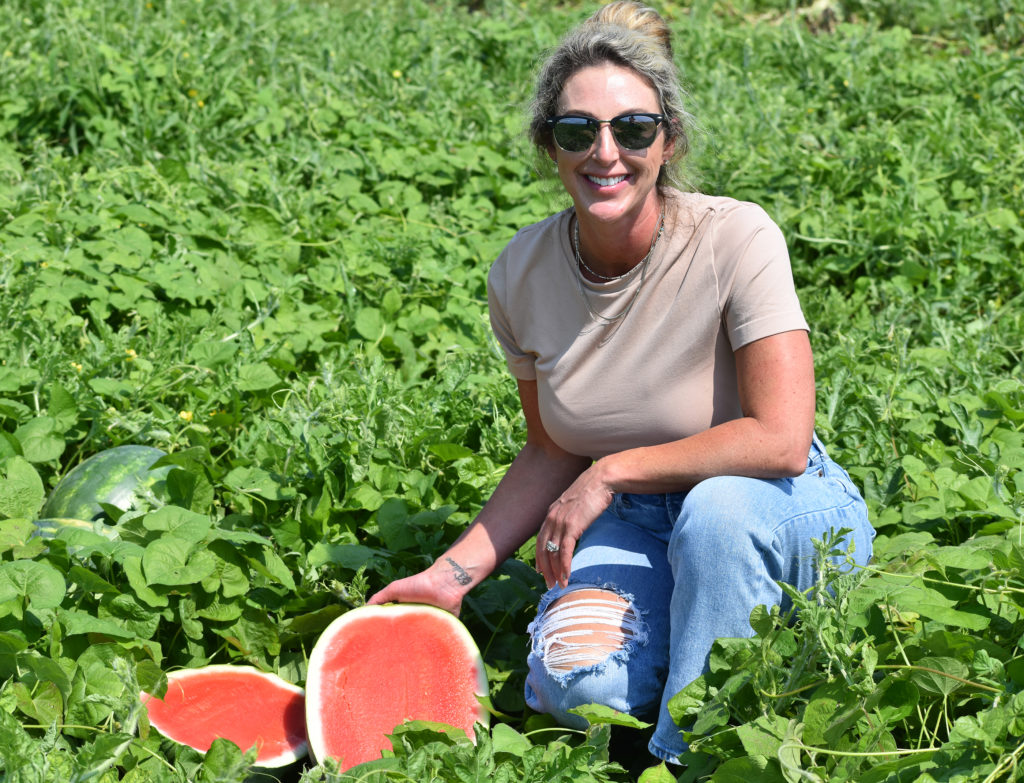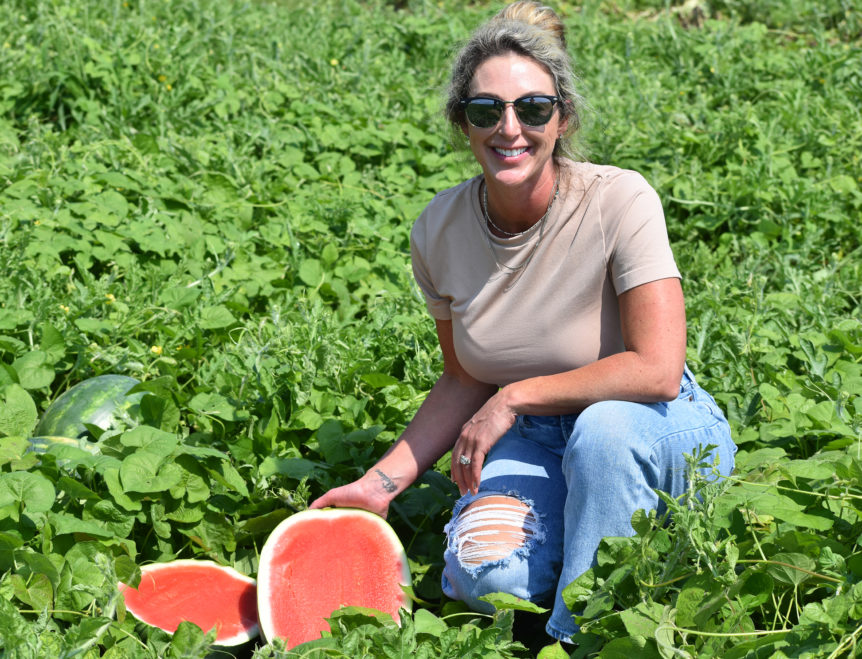
By Clint Thompson
Growing up in Cordele, Georgia, the “Watermelon Capital of the World,” Jordan Carter never imagined working in agriculture and being a voice for watermelon growers across the Southeast. She was, after all, selling insurance as recently as 2013 before joining Leger & Son as director of sales and marketing.
Eleven years later, she is the vice president of the National Watermelon Association and a past president of the Watermelon Promotion Board.
“It’s very empowering when you’re in Washington. You feel powerful because you want to make a difference,” Carter says. “You’re fighting for your farm, you’re fighting for your family and you’re fighting for the country. You’re a part of something bigger.”
The Big Issues
Much of Carter’s fight has centered on helping producers overcome the labor challenge that is threatening the fruit and vegetable industry. Like other specialty crop leaders, she stresses that congressional intervention is needed.
“We’ve reached a critical point, and without any sort of help, we’re going to be in big trouble. The American farmer is really suffering, and a lot of that has to do with the lack of labor and the costs of production. When we start to import more than we export, that becomes a huge issue, a matter of national security,” Carter says.
Labor concerns stem from a lack of interest from domestic workers and a total reliance on the expensive and cumbersome H-2A program, facts that appear lost on decision makers in Washington, D.C.
“No American wants to do that labor-intensive work, and that’s just a fact. We have to have this labor to harvest our crops and feed the world. We have to have them. It’s a necessity. I’m hoping that somehow Congress will help us out in some way because right now it seems like we’re being put on the back burner,” she says.
Besides labor, other issues are also challenging the landscape of watermelon production. “We’re dealing with the same issues, fighting for the same things; labor, land, costs of production, dealing with imports during the domestic season, and trying to fight all of that has been really challenging,” Carter says.
Other issues include the farm bill, an important piece of legislation that is passed every five years that includes key components like crop insurance, nutrition, conservation, rural development and research.
“Our job is to feed the world, and we are doing it with fewer resources than ever. We need a strong farm bill that provides stability for the American farmer,” she adds.
Stepping Up
Having grown up in South Georgia, Carter has always had a strong appreciation for the state’s No. 1 industry. But it wasn’t until she joined Leger & Son that Carter truly appreciated the passion and determination of Georgia farmers.
“Seeing it firsthand was completely different. Seeing the passion and the drive and what these people do day in and day out, they’re just full of humility and take pride in what they do. I was part of something bigger than myself really for the first time in my life,” Carter says.
Carter had to learn to be a voice for farmers. She is usually reserved in her demeanor. Sitting in conference rooms surrounded by male farmers early in her agricultural career was an intimidating experience. Carter took to heart advice that Greg Leger gave her prior to her accepting a leadership role: “Only speak when you need to. Other than that, be a good listener.”
“Being in these leadership roles has been amazing but scary. It’s intimidating, especially being a woman in the industry, but I’ve learned so much about myself and the leadership styles, how to lead others and how to work with others. It’s taught me a lot about who I am and what I want to be and where I want to go,” Carter says.
She understood quickly that her success would hinge on becoming more familiar with the industry. Fortunately, Carter enjoys learning every chance she gets.
“When I got this job, I decided I’m going to learn everything I can. I fell in love with it. Somebody nominated me to be in the University of Georgia Advancing Georgia’s Leaders in Agriculture and Forestry. That program really taught me a lot about my personality and how I lead,” she adds.
It has not always been a pleasant experience for Carter. Her first year with Leger & Son was one of the worst seasons for Southeast watermelon producers. She said there were multiple adverse weather events that decreased profits and deflated spirits of producers like the Leger family. But it did not drive her away.
“There was a lot of bad weather, tropical depressions and a lot of rejections. It started that way and ended that way. It was a rough year,” Carter recalls. “When it was all said and done, I remember Greg and his dad saying, ‘This is probably one of the worst years we’ve ever seen.’ They were in the business for so long, since 1965. It was just awful.
“After the first year, I think I cried every day. But everybody was really passionate about what they were doing, and I think that’s what drew me in. It stuck and here I am today.”










